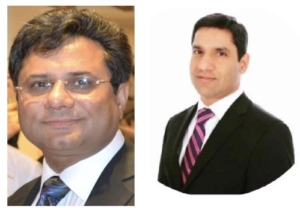Dr. Ikramul Haq and Abdul Rauf Shakoori

The world ranking by Transparency International placed Pakistan at number 140 in the latest Corruption Perception Index (CPI) 2021. This confirms that our weak preventive mechanisms for controlling corruption and countering white collar crimes need massive improvements. The Transparency International, in its various reports, has highlighted many difficulties/impediments faced by Pakistani citizens while interacting with various state institutions. The July 2021 report of Asia Pacific Group (APG) also pinpoints Pakistan’s weaknesses in dealing with corruption and white collar crimes. The report concludes that inefficient bureaucracy and high level of corruption pose a significant barrier to compliance and business growth in Pakistan.
Even after 75 years of independence we have failed to adequately address the challenges posed by white collar crimes, corruption and money laundering etc. Pakistan’s legislative history offers credible clues when laws were promulgated and abused for personal and political gains. The first Constituent Assembly passed the ‘Public and Representative Offices (Disqualification) Act of 1949 (PRODA) with retrospective effect from 15th August 1947—day one of the sovereign state. Then came the Elective Bodies (Disqualification) Order (EBDO) in 1959 by martial law regime of General Muhammad Ayub Khan.
The PRODA was aimed at debarring dissident voices from public life on charges of misconduct (sic) up to 15 years. The EBDO disqualified an entire generation of politicians through coercion and/or ‘voluntary retirement’—the pretext? Cleansing the “country’s body politic from all sorts of corruption”.
Zulfikar Ali Bhutto also ventured into accountability through the Holders of Representative Offices (Prevention of Misconduct) Act, 1976 and Parliament and Provincial Assemblies (Disqualification from Membership) Act, 1976 and the Parliament and Provincial Assemblies (Disqualification for Membership) Order, 1977.
General Muhammad Ziaul Haq promulgated two draconian accountability laws, namely, Holders of Representative Offices (Punishment for Misconduct) Order, 1977 and Parliament and Provincial Assemblies (Disqualification for Membership) Order, 1977. Later during his 11-year-old rule through many presidential orders, in the name of eliminating corruption, he systematically promoted it by giving unprecedented favours to his supporters, writing off their loans, and issuing grants to members of national and provincial assemblies.
While rewarding his allies through lucrative posts and waiving outstanding loans, General Pervez Musharraf introduced the National Accountability Ordinance 1999 (NAB Ordinance) to punish political opponents. It was made applicable from January 1, 1985. This was in violation of the fundamental right guaranteed in Article 12(1) of the Constitution of Islamic Republic of Pakistan [“the Constitution”], which reads as under:
“Protection against retrospective punishment
- (1) No law shall authorize the punishment of a person—
- for an act or omission that was not punishable by law at the time of the act or omission; or
- for an offence by a penalty greater than, or of a kind different from, the penalty prescribed by law for that offence at the time the offence was committed”.
NAB Ordinance resulted in silencing many dissenting voices and offices of National Accountability Bureau (NAB) were used to arrest people on flimsy grounds detaining them for extended periods and subjecting them to mental and physical torture to extract confessions or forced into plea bargains. The former chief justice of Pakistan, Jawad S. Khawaja, described this practice as institutionalized corruption. The APG’s Mutual Evaluation Report observed that NAB’s performance resulted in only “one person being convicted for money laundering related cases from 2013-2018”.
Undeniably, from its very inception NAB has been controversial—perceived as a tool for oppression and victimization of political opponents by those in power proving to be true with passage of time and can be verified from last 20 years track record as also from many judgements of superior courts. The politically-motivated and discriminatory approach of NAB has shaken people’s faith regarding its credibility and impartiality. Unfortunately, accountability enactments so far, including NAB Ordinance, have been employed as tools to influence loyalties, fracturing and rupturing political parties.
Many of NAB’s accountability cases amount to squashing of fundamental rights, unlawfully curtailing freedom in utter disregard for human dignity, arresting accused on random application and without any trial process keeping them behind bars in the name of so-called investigation. Many innocent persons were incarcerated for months and years without being provided sufficient cause. Due to NAB authorities’ incompetency and lack of professionalism a number of investigations remained inconclusive for years with cases pending in courts. Even where these were concluded conviction rate was terribly low. Instead of serving the noble cause of eradicating corruption, this tool for arm-twisting politicians has caused irreparable loss to the country and society in multiple ways. The flawed mechanism of NAB compelled politicians and government functionaries to restrain from necessary actions/decisions for smooth functioning of the state and its organs.
Another impediment to eradicating white collar crimes is our judicial system. As per the Global Competitive Report (GCR) 2020, two out of five Pakistanis believe that our judicial system is corrupt and makes favourable decisions for those accused of irregular payments. The report highlights that the corporate sector has no faith in the judiciary. It says that Pakistan’s judiciary is known for inefficiency, poor case management, unnecessary delays, and nepotism and is subject to undue influence from the power corridor of wealthy, religious and political figures.
In the last four years our ranking on CPI changed from 117 to 140 and as we are also in the FATF programme to address money laundering and terrorist financing framework, we have to urgently combat corruption, white collar crimes, and illicit proceeds meant to corrode the foundations of our society.
Till today, selective accountability has not only promoted corruption, but has also drained our economy. For improving our global image, the way forward is to reform our institutions, insist on uniform application of laws and implement robust, effective controls over law enforcement and judiciary to protect the citizens’ rights without any discrimination.
The real challenge is how can we handle the malaise of corruption? Should we continue amending the NAB Ordinance, as we are doing since its promulgation? Better option is to improve our governance and elevate our institutions at par with international standards so that we should not have another parallel system for arm-twisting of opponents.
Any exercise to update accountability laws with the intent to bring positive changes will not serve any purpose unless reforms in all institutions—civil and military—are undertaken. The continuous involvement of powerful institutions of army and judiciary in our political and administrative matters is causing damage to the entire system.
Role of our higher judiciary is under question since last six years. Their controversial judgements are on one hand impacting our global image and on the other, hampering our economic growth. Despite being ranked at number 130 by the World Justice Project Report, we have not witnessed any radical change to improve. In most of the cases, it appears that the judgements are beyond assigned powers. Since the accountability process of judiciary is weak, it hardly provides effective system of check and balances. In presence of these issues amending NAB Ordinance alone will be insufficient. Rather, it will open more avenues for abuse and misuse.
The incumbent government of the Pakistan Democratic Movement (PDM) has amended the NAB Ordinance trying to roll back retrospective application. However, the new amended Act of 2022 is still faulty. Definition of benamidar (name-lender) needs clarity as it can be misused. Present procedure for appointment of National Accountability judges through respective high courts must be reviewed placing it under the apex court. Similarly, offences of corruption and corrupt practices, defined under section 9 of the NAB Ordinance, need further explanation in the light of best international practices—mere allegation of lifestyle disproportionate to known sources of income does not make any person guilty unless incontrovertible evidence is available and presented to a competent judicial authority before arresting and trying an accused.
The working of our institutions cannot be improved unless a proper mechanism for their accountability is not introduced. The concept of self-accountability for judges in the name of independent of judiciary is tarnishing the image of our judicial system. It is promoting both selective justice and violating the norms set by the Universal Declaration of Human Rights issued by United Nations that specifically states: “No one shall be subjected to arbitrary arrest, detention or exile”. Moreover, the recent decisions of higher courts are in open violation of Article 10A of the Constitution of Pakistan, which extends right of fair trial to every citizen and reads: “For the determination of his civil rights and obligations or in any criminal charge against him a person shall be entitled to a fair trial and due process”.
In the end, we must understand that Pakistan as a country is alleged to have an apex court and higher judiciary indulging in excessive and misplaced judicial activism in contradiction of Article 175(2) of the Constitution. This alleged undesirable practice has undermined our image as a nation in the international community and impacted our social, political and economic stature. Since misplaced judicial activism motivated by political and/or personal preference leads to deviation by courts from their assigned jurisdiction, their decisions set undesirable precedents for lower courts. Consequently, the people have to pay enormous price on political and economic fronts. Therefore, it is mandatory that before amending accountability statutes, our lawmakers should introduce comprehensive laws for across the board accountability—their own, judges and all officials in civil and military bureaucracy. Unless it is done, the dream of making Pakistan corruption-free will remain unrealized.
_______________________________________________________________
Dr. Ikramul Haq, Advocate Supreme Court, specialises in constitutional, corporate, media, ML/CFT related laws, IT, intellectual property, arbitration and international tax laws. He is country editor and correspondent of International Bureau of Fiscal Documentation (IBFD) and member of International Fiscal Association (IFA). He is Visiting Faculty at Lahore University of Management Sciences (LUMS) and member Advisory Board and Visiting Senior Fellow of Pakistan Institute of Development Economics (PIDE).
Abdul Rauf Shakoori, Advocate High Court, is a subject-matter expert on AML-CFT, Compliance, Cyber Crime and Risk Management. He has been providing AML-CFT advisory and training services to financial institutions (banks, DNFBPs, Investment companies, Money Service Businesses, insurance companies and securities), government institutions including law enforcement agencies located in North America (USA & CANADA), Middle East and Pakistan. His areas of expertise include legal, strategic planning, cross border transactions including but not limited to joint ventures (JVs), mergers & acquisitions (M&A), takeovers, privatizations, overseas expansions, USA Patriot Act, Banking Secrecy Act, Office of Foreign Assets Control (OFAC).
The recent publication, coauthored by these writers with Huzaima Bukhari, is:
Pakistan Tackling FATF: Challenges & Solutions
https://www.amazon.com/dp/B08RXH8W46 and https://aacp.com.pk/






